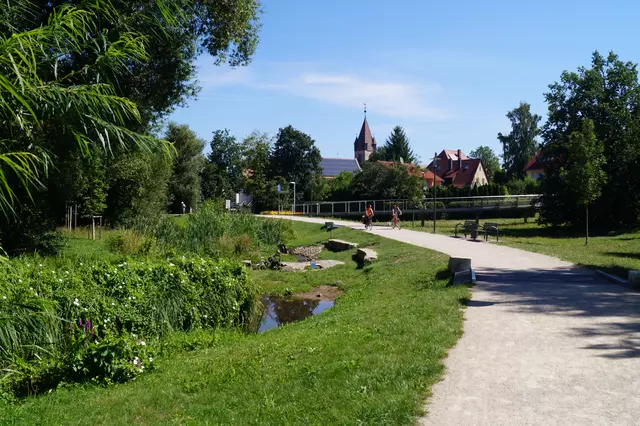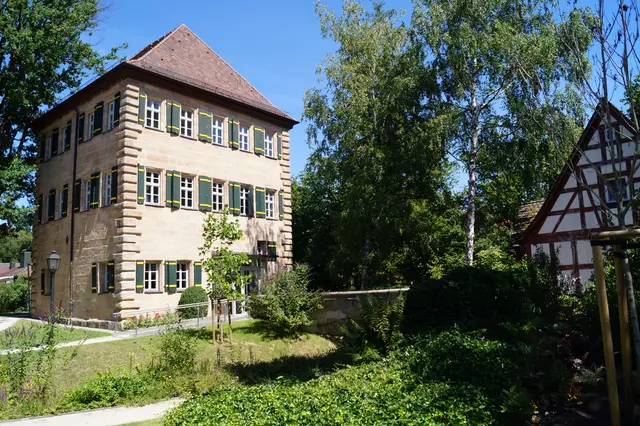Diese Technologien werden von Werbetreibenden verwendet, um Anzeigen zu schalten, die für Ihre Interessen relevant sind.
Hierbei handelt es sich um ein Social Plug-In von Facebook, das die Einbindung von Facebook-Inhalten auf Websites von Drittanbietern ermöglicht.
Meta Platforms Ireland Ltd.
4 Grand Canal Square, Grand Canal Harbour, Dublin 2, Dublin, D02X525, Ireland
Diese Liste stellt die Zwecke der Datenerhebung und -verarbeitung dar. Eine Einwilligung gilt nur für die angegebenen Zwecke. Die gesammelten Daten können nicht für einen anderen als den unten aufgeführten Zweck verwendet oder gespeichert werden.
- Integration von Facebook-Funktionen
- Werbung
- Personalisierung
- Optimierung
Bitte beachten Sie, dass bei Ihrer Einwilligung zu einem Dienst auch das Laden von externen Daten sowie die Weitergabe personenbezogener Daten an diesen Dienst erlaubt wird.
Diese Liste enthält alle (persönlichen) Daten, die von oder durch die Nutzung dieses Dienstes gesammelt werden.
- HTTP-Header
- Browser-Informationen
- Datum und Uhrzeit des Besuchs
- Besuchte Websites
- Nutzungsdaten
- Facebook-Benutzer-ID
Im Folgenden wird die nach Art. 6 I 1 DSGVO geforderte Rechtsgrundlage für die Verarbeitung von personenbezogenen Daten genannt.
- Art. 6 Abs. 1 s. 1 lit. a DSGVO
Die Aufbewahrungsfrist ist die Zeitspanne, in der die gesammelten Daten für die Verarbeitung gespeichert werden. Die Daten müssen gelöscht werden, sobald sie für die angegebenen Verarbeitungszwecke nicht mehr benötigt werden.
Die Daten werden gelöscht, sobald sie nicht mehr für die Verarbeitungszwecke benötigt werden.
- Meta Platforms, Inc.
- Meta Platforms Ireland Ltd.
Nachfolgend finden Sie die E-Mail-Adresse des Datenschutzbeauftragten des verarbeitenden Unternehmens.
https://www.facebook.com/help/contact/540977946302970
Einige Services leiten die erfassten Daten an ein anderes Land weiter. Nachfolgend finden Sie eine Liste der Länder, in die die Daten übertragen werden. Dies kann für verschiedene Zwecke der Fall sein, z. B. zum Speichern oder Verarbeiten.
Weltweit
Zu diesem Dienst gehören die folgenden Cookies:
- hwdatenschutz_cookie_facebook
- Setzt zusätzliche Cookies für eine andere Domain (facebook.com)
Diese Technologien ermöglichen es uns, die Nutzung der Website zu analysieren, um die Leistung zu messen und zu verbessern.
Dies ist ein Dienst zum Anzeigen von Videoinhalten.
Google Ireland Limited
Google Building Gordon House, 4 Barrow St, Dublin, D04 E5W5, Ireland
Diese Liste stellt die Zwecke der Datenerhebung und -verarbeitung dar. Eine Einwilligung gilt nur für die angegebenen Zwecke. Die gesammelten Daten können nicht für einen anderen als den unten aufgeführten Zweck verwendet oder gespeichert werden.
Bitte beachten Sie, dass bei Ihrer Einwilligung zu einem Dienst auch das Laden von externen Daten sowie die Weitergabe personenbezogener Daten an diesen Dienst erlaubt wird.
- Cookies (falls "Privacy-Enhanced Mode" nicht aktiviert ist)
Diese Liste enthält alle (persönlichen) Daten, die von oder durch die Nutzung dieses Dienstes gesammelt werden.
- IP-Adresse
- Referrer-URL
- Geräte-Informationen
- Gesehene Videos
Im Folgenden wird die nach Art. 6 I 1 DSGVO geforderte Rechtsgrundlage für die Verarbeitung von personenbezogenen Daten genannt.
- Art. 6 Abs. 1 s. 1 lit. a DSGVO
Die Aufbewahrungsfrist ist die Zeitspanne, in der die gesammelten Daten für die Verarbeitung gespeichert werden. Die Daten müssen gelöscht werden, sobald sie für die angegebenen Verarbeitungszwecke nicht mehr benötigt werden.
Die Daten werden gelöscht, sobald sie nicht mehr für die Verarbeitungszwecke benötigt werden.
- Alphabet Inc.
- Google LLC
- Google Ireland Limited
Nachfolgend finden Sie die E-Mail-Adresse des Datenschutzbeauftragten des verarbeitenden Unternehmens.
https://support.google.com/policies/contact/general_privacy_form
Einige Services leiten die erfassten Daten an ein anderes Land weiter. Nachfolgend finden Sie eine Liste der Länder, in die die Daten übertragen werden. Dies kann für verschiedene Zwecke der Fall sein, z. B. zum Speichern oder Verarbeiten.
Weltweit
Zu diesem Dienst gehören die folgenden Cookies:
- hwdatenschutz_cookie_youtube
- Setzt zusätzliche Cookies für eine andere Domain (youtube.com)
Dieser Dienst lädt und übermittelt ggf. Daten von/an einen externen Dienstleister. Da der individuelle Text zu diesem Dienst noch aussteht, ist nur ein allgemeiner Text zu finden, der die meisten Datenverarbeitungszwecke abdeckt.
akdb.digitalfabriX GmbH
Diese Liste stellt die Zwecke der Datenerhebung und -verarbeitung dar. Eine Einwilligung gilt nur für die angegebenen Zwecke. Die gesammelten Daten können nicht für einen anderen als den unten aufgeführten Zweck verwendet oder gespeichert werden.
- Integration des Dienstes
- Personalisierung
Bitte beachten Sie, dass bei Ihrer Einwilligung zu einem Dienst auch das Laden von externen Daten sowie die Weitergabe personenbezogener Daten an diesen Dienst erlaubt wird.
Diese Liste enthält alle (persönlichen) Daten, die von oder durch die Nutzung dieses Dienstes gesammelt werden.
- IP-Addresse
- Geräte-Informationen
- Browser-Informationen
- Standort-Informationen
- Nutzungsdaten
Im Folgenden wird die nach Art. 6 I 1 DSGVO geforderte Rechtsgrundlage für die Verarbeitung von personenbezogenen Daten genannt.
- Art. 6 Abs. 1 s. 1 lit. a DSGVO
Keine Angabe
Die Aufbewahrungsfrist ist die Zeitspanne, in der die gesammelten Daten für die Verarbeitung gespeichert werden. Die Daten müssen gelöscht werden, sobald sie für die angegebenen Verarbeitungszwecke nicht mehr benötigt werden.
Die Daten werden gelöscht, sobald die Sitzung beendet ist.
Diese Technologien sind erforderlich, um die Kernfunktionalität der Website zu ermöglichen.
Die Cookies mit dem Präfix hwdatenschutz_cookie_ werden verwendet, um Ihre Auswahl aller auswählbaren Cookies zu speichern. Die essentiellen Cookies werden automatisch auf 1 gesetzt, da sie notwendig sind, um sicherzustellen, dass die entsprechende Funktion bei Bedarf geladen wird.
Das Cookie namens hwdatenschutz_cookie_approved speichert den aktuellen Zustimmungsstatus des Cookie-Banners. Sollte es ein Update der Website geben, das Aspekte der Cookies verändert, würde dies zu einer Versionsdiskrepanz im Cookie-Banner führen. Folglich werden Sie aufgefordert, Ihre Zustimmung zu überprüfen und erneut zu erteilen.
Alle hwdatenschutz_cookie_ haben eine Bestandsdauer von einem Monat und laufen nach diesem Zeitraum ab.
Bei jedem Dienst ist das entsprechende Cookie hwdatenschutz_cookie_ aufgeführt, um zu erkennen, welches Cookie welchen Dienst ermöglicht.
Ermöglicht die Bedienung von Online-Formularen.
Markt Feucht
Diese Liste enthält alle (persönlichen) Daten, die von oder durch die Nutzung dieses Dienstes gesammelt werden.
- IP-Adresse
- Browser-Informationen
Im Folgenden wird die nach Art. 6 I 1 DSGVO geforderte Rechtsgrundlage für die Verarbeitung von personenbezogenen Daten genannt.
- Art. 6 Abs. 1 s. 1 lit. a DSGVO
Die Aufbewahrungsfrist ist die Zeitspanne, in der die gesammelten Daten für die Verarbeitung gespeichert werden. Die Daten müssen gelöscht werden, sobald sie für die angegebenen Verarbeitungszwecke nicht mehr benötigt werden.
Die Daten werden gelöscht, sobald die Sitzung beendet ist.
Zu diesem Dienst gehören die folgenden Cookies:
- hwdatenschutz_cookie_powermail
- fe_typo_user







